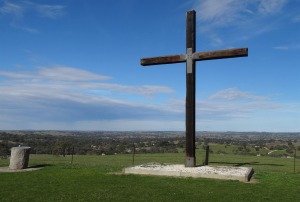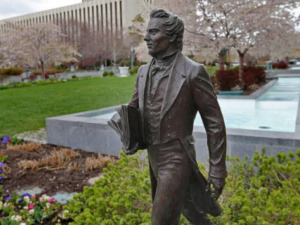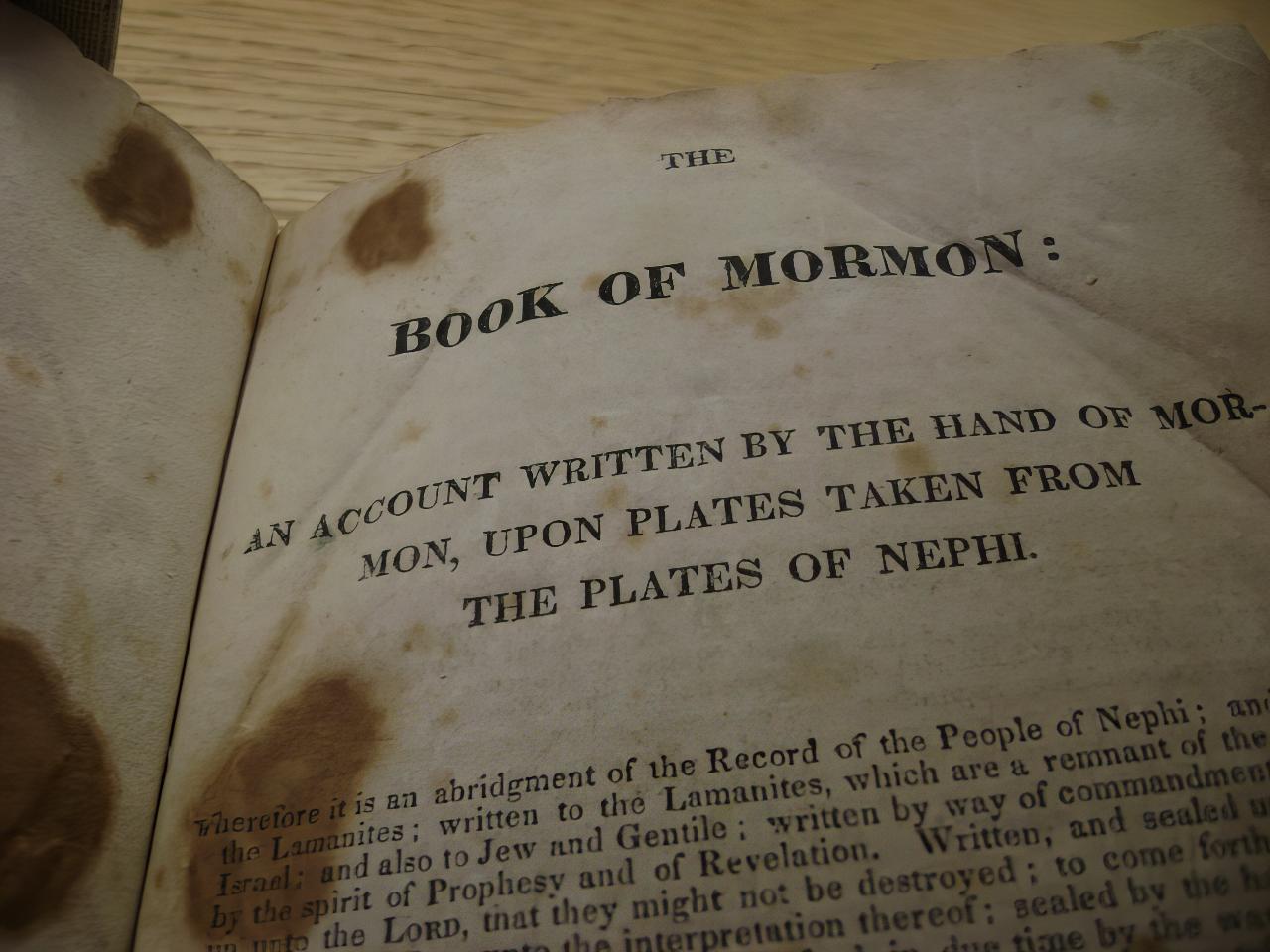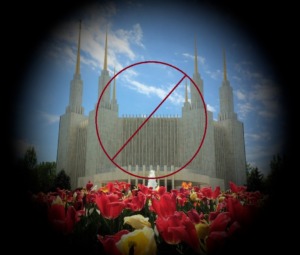"And the fifth angel sounded, and I saw a star fall from heaven unto the earth: and to him was given the key of the bottomless pit." (Revelation 9:1 – KJV)
"And the fifth angel sounded, and I saw a star fall from heaven unto the earth. And to the angel was given the key of the bottomless pit." (Revelation 9:1 – JST)
Notable changes to Revelation 9:1:
• KJV: A star fell from heaven, of which "to him was given the key of the bottomless pit."
• JST: A star fell from heaven, of which "to the angel was given the key of the bottomless pit."
The King James Version (KJV) of Revelation 9:1 describes a star falling from heaven to earth. This person is being given the key to the bottomless pit. This imagery suggests that the star is a powerful and malevolent entity. He has been granted authority to open the abyss and release its destructive forces upon the earth. The Joseph Smith Translation (JST) attempts to clarify that the key to the bottomless pit was given to "the angel". So, instead of the star that fell from heaven, it is not an angel. Let's think about this for a minute. Is Lucifer still regarded as an angel? No. He is called a fallen angel. We know that God cast Lucifer out of heaven for wanting to elevate himself to Godhood. In so doing, he was cast down like lightning to the earth. It is written, "I beheld Satan as lightning fall from heaven." (Luke 10:18) This star may very well represent Satan. However, I will not go so far as to change the wording from, "to him", "to Satan." This only leads to speculation.
Speaking of Revelation 9:1, we see the following. In this verse, the KJV Bible doesn’t mention who has the key to the bottomless pit. We can only speculate who this person is, as I mentioned above. However, the JST automatically assumes it is an angel and adds that word instead of "him". Why is this a problem? Substituting words like this, adds a man-made meaning where it has no right to do. Doing this causes more people to believe in what Joseph said and not what the Bible intended it to read. Some things are not meant to be revealed until it happens. Therefore, Mormons believe the person who added to the Bible rather than what God's Word actually says. Their trust in their own knowledge surpasses their trust in God. This is what happens with many people that read paraphrased Bibles like this one. The Joseph Smith Translation is one of the worst paraphrased Bibles out there. This is because it is not a translation but a rewritten version of the KJV Bible.
"Saying to the sixth angel which had the trumpet, Loose the four angels which are bound in the great river Euphrates." (Revelation 9:14 – KJV)
"Saying to the sixth angel which had the trumpet, “Loose the four angels which are bound in the bottomless pit.” (Revelation 9:14 – JST)
Notable changes to Revelation 9:14:
• KJV: Four angels are to be loosed from the great river Euphrates. It is written, "loose the four angels which are bound in the great river Euphrates."
• JST: Four angels are to be loosed from the bottomless pit. It is written, "loose the four angels which are bound in the bottomless pit.”
The King James Version (KJV) of Revelation 9:14 describes the sixth angel being told to loose the four angels who are bound in the great river Euphrates. This imagery suggests that fallen angels are confined or restrained in the river, and their release will have significant consequences. The Joseph Smith Translation (JST) changes the location of the four angels. Instead of being bound in the great river Euphrates, they are bound in the bottomless pit. This alteration aligns with the description of the bottomless pit as a place of confinement and judgment (see Revelation 20:1-3). However, this cannot be the case, as Revelation 9:1,2 speaks of the bottomless pit being opened. Where in verse 14, this new place is opened up, the river Euphrates.
The great river Euphrates and the bottomless pit are two different places. So, why was “which are bound in the great river Euphrates” (KJV) changed to “which are bound in the bottomless pit” (JST)? This doesn't make any sense, as this is not a small correction to the verse. The location of the fallen angels is now different. As I mentioned above, the bottomless pit has already opened up in verse 1 and 2. Therefore, this place has to be different. The great river Euphrates is not the same location as the bottomless pit. Does this cause confusion? Yes. Could it cause people to distrust the original Biblical text? It does that too. There are consequences for such sinful actions. People who add or remove verses from the Bible are condemned.
"And the number of the army of the horsemen were two hundred thousand thousand: and I heard the number of them." (Revelation 9:16 – KJV)
"And the number of the army of the horsemen were two hundred thousand thousand. And I saw the number of them." (Revelation 9:16 – JST)
Notable changes to Revelation 9:16:
• KJV: Looking at the army of the horsemen, it speaks of hearing the number of them. It is written, "and I heard the number of them."
• JST: Looking at the army of the horsemen, it speaks of seeing the number of them. It is written, "and I saw the number of them."
The King James Version (KJV) of Revelation 9:16 describes the vast army of horsemen as numbering "two hundred thousand thousand," and the narrator states that he "heard the number of them." This imagery suggests that the narrator is informed of the number through some form of auditory communication. This is perhaps a voice or a divine revelation. The Joseph Smith Translation (JST) changes the perception of the number of the army of the horsemen. Instead of being heard, they are now seen. Joseph goes so far as saying, "saw the number of them." This alteration suggests a more direct and overwhelming experience of the vastness of the army. By seeing the number, the narrator is not merely informed of it but is visually confronted with its magnitude.
As for this verse, the following change took place. The word “heard” was changed to “saw”. As well as the phrase, “and I heard the number of them.” was changed to “and I saw the number of them.” What does the word "hear" mean in this case? It is to perceive with the ears, the sound made by a person or something. How about the word, “see”, It means to perceive with the eyes and to discern visually. So, seeing a “number of the army of the horsemen” would mean seeing them with our eyes, this vast army. Where hearing a “number of the army of the horsemen” would mean hearing the army round about us. This does not mean we would be able to see the army. This is not a small change but a big one. Hearing is not the same as seeing. It's as simple as this.
"We have also a more sure word of prophecy; whereunto ye do well that ye take heed, as unto a light that shineth in a dark place, until the day dawn, and the day star arise in your hearts: Knowing this first, that no prophecy of the scripture is of any private interpretation. For the prophecy came not in old time by the will of man: but holy men of God spake as they were moved by the Holy Ghost." (2 Peter 1:19-21)
The Bible is a sacred text that should be approached with reverence and humility. According to the Apostle Peter, scripture can only be properly understood if the Holy Spirit is present. God spoke to people through the Spirit, and we should be moved in the same way when we engage with the text. Failing to do so can result in false doctrines being added to our beliefs. This leads to confusion and distrust in the Biblical text. One person who has done this is Joseph Smith, the founder of the Mormon church. While many Mormons revere him as a prophet. Others see him as a con man who twisted the Bible to suit his own purposes. Smith believed that he knew better than the translators of the King James Version (KJV) Bible. Therefore, he created his own version called the Joseph Smith Translation (JST). This version contains over 3400 changes to the KJV Bible. There are significant alterations to the Book of Revelation also.
The consequences of adding or removing from the Biblical text are severe. Those who do this are condemned by God, and they will face eternal punishment. The Book of Revelation warns about anyone who would add to or take away from its prophecies. Doing so, they will suffer the plagues described in the book. These people have their names blotted out of the Book of Life. This means that they will not go to heaven and will instead face the lake of fire, which is the second death. The problem with the JST is that it is not a translation at all, but a revision of the KJV. By changing the words, and their order, Smith added his own meaning to the text. This caused people to believe in what he said rather than what the Bible intended. This is a dangerous precedent, as it undermines the authority of the Bible and leads people astray.
The consequences of purposely changing the Bible are grave. Adding to, taking away from, or rearranging the text means going against God's will and incurring his wrath. Those who do so will suffer as spirits in hell. This is where they will experience pain, torture, and constant thirst with no water to quench it. They will face the plagues described in Revelation, and their names will be blotted out of the Lamb's Book of Life. When they stand before Jesus in judgment, they will hear the words "I never knew you", and "depart from me." This is a fearful outcome and should be avoided at all costs. In the case of Joseph Smith, we can see that he knowingly and purposefully changed the Book of Revelation. These changes are found in dozens of verses, and they have led many people astray. As a result, Smith is suffering in hell, where he is experiencing pain, sorrow, and regret. He will not enter New Jerusalem as his name is not found in the Book of Life. Instead, he will receive a resurrected body that will die and experience a second death in the lake of fire. This is a tragic outcome, but it serves as a warning to all who would dare tamper with the word of God.
In conclusion, the Bible is a sacred text that should be approached with reverence and humility. We must rely on the Holy Spirit to guide our interpretation of God's Word. This will give us the power to resist any temptation to alter the Biblical text. Our own purposes are replaced with God's desires for our lives. Those who ignore the Lord will face severe consequences in the life to come. As we have seen in the case of Joseph Smith, he thought he knew better than the translators of the King James Bible. Let us strive to remain faithful to the word of God and avoid the dangers of false doctrines. Amen.







